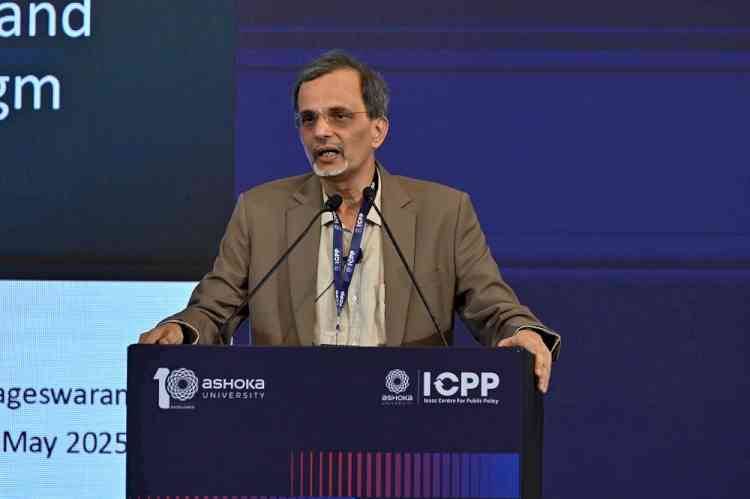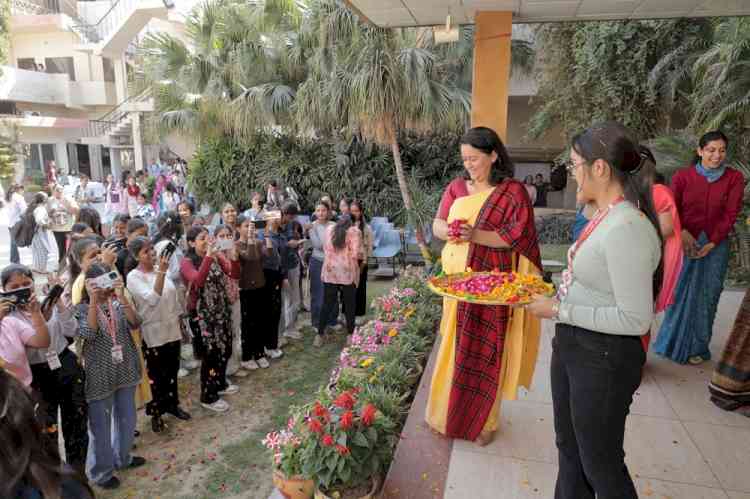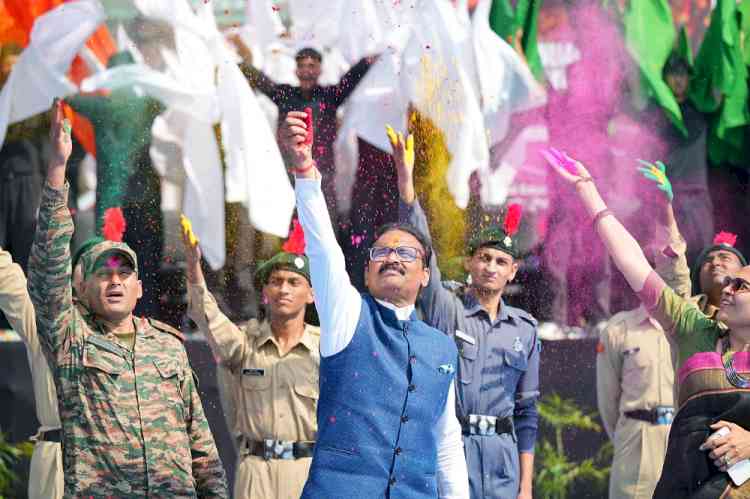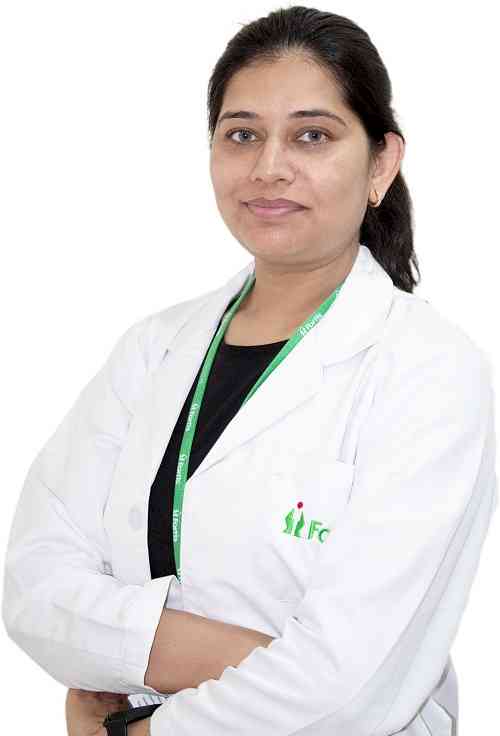“India’s economy is in good shape despite challenging global environment”: Dr. V. Anantha Nageswaran states at Ashoka University’s ICPP Conference
Leading policymakers and experts including Dr. V. Anantha Nageswaran, Chief Economic Advisor, Government of India and Suman Bery, Vice Chairman, Niti Aayog deliberated on economic growth priorities

New Delhi, May 3, 2025: The Isaac Centre for Public Policy (ICPP) at Ashoka University concluded its First Annual Growth Conference 2025 in New Delhi today, with dynamic discussions on critical pillars of India's medium-term growth — employment, the rural economy, and the role of developed states in driving national progress. Over the course of two days, the conference featured high-level sessions aimed at generating actionable insights and collaborative strategies for strengthening India’s growth and governance frameworks.
The second and the final day of the conference witnessed leading policymakers, senior government officials, business leaders, and academics including Dr. V. Anantha Nageswaran, Chief Economic Advisor, Government of India; Suman Bery, Vice Chairman, Niti Aayog; Atul Tiwari, Secretary, Ministry of Skill Development and Entrepreneurship, amongst others.
Setting the context for the first session on Employment and Labour, Dr. Anisha Sharma, Professor of Economics, Ashoka University highlighted the current employment scenario in the country and the importance of building a skilled workforce to suit the current job market. "We've seen a substantial decline in unemployment since 2017, and that's very good news. However, the level of unemployment, especially among young, highly educated individuals, is still very high. There is also a concern that even though these individuals are on paper highly qualified, they lack the effective skills actually in demand from industry."
The lack of skills amongst the current workforce was one of the important issues addressed by the session featuring Atul Tiwari, Secretary, Ministry of Skill Development and Entrepreneurship, Sanjay Chadha, Director, Public Policy, India & South Asia, Uber India, and Dr. Kanika Mahajan, Associate Professor of Economics, Ashoka University.
Highlighting his views on the existing skill-gap in the country, Atul Tiwari, Secretary, Ministry of Skill Development and Entrepreneurship said, "The root cause of the skilling problem lies in our education system which prioritizes degrees over skills. Under the National Education Policy (NEP) 2020, we are planning on a lot of things to bring skilling and education together and there is an intense debate on how to introduce the vocational education so that students can benefit from it.”
"Over the last few years, the skilling ecosystem has developed quite a lot. Apprenticeship is growing, and we are going ahead with an overall ITI system overhaul. A lot of things are happening in mainstream skilling with education, AI, semiconductor, cybersecurity, and green hydrogen coming into focus. Towards this effort, we also require industry to work with us on co-designing curriculum. But the fact remains that skilling must be accepted as an essential outcome across our education and workforce." he added.
The session was followed by a keynote address by Suman Bery, Vice Chairman of NITI Aayog who emphasized India's long-term vision of becoming a developed, high-income society by 2047. He discussed the need for sustained and accelerated growth, focusing on the importance of labor productivity, investment, and structural reforms to boost the economy. “Over the last three decades, India has achieved consistent annual growth rate of 6.5 per cent and I think it’s an impressive achievement. It showcases both institutional agility and a certain institutional maturity in India,” he said.
“The global turmoil could be an opportunity for India and there is no time to lose when it comes to moving on a faster growth trajectory,” Suman Bery further added, highlighting that India can leverage demographic dividend, technology and geopolitical shifts to accelerate growth.
The next session on Developed States for a Developed India assembled senior policymakers and business leaders including Shri Ashish Dhawan, Founding Chairperson, Board of Trustees, Ashoka University as the moderator, and Shri Jayesh Ranjan, Special Chief Secretary, Telangana, Seema Bansal Vice-Chairperson, Punjab Development Commission, Radha Raturi, Former Chief Secretary, Uttarakhand, and Chief Information Commissioner, Uttarakhand as key panelists.
Opening the session by highlighting the active roles different states play in pushing India towards further economic might, Ashish Dhawan, Founding Chairperson, Board of Trustees, Ashoka University and Advisory Council, ICPP and Good Governance, Ashoka University said, “As previous sessions have highlighted, India is looking at more accelerated and sustained growth and in this context, states become highly relevant. We've seen such dynamism from different states in terms of accelerated growth over a long period of time and this is achieved by taking unconventional approaches, new reforms and initiatives and through deregulation and creating incentives to attract industry.”
Jayesh Ranjan, Special Chief Secretary, Telangana highlighted the growth story of Telangana and mentioned the critical role major reforms played. “I want to thank ICPP for creating a session on different states and recognizing the important role we play. Telangana has seen remarkable growth in the last few years, registering the highest per capita income after Goa and Sikkim. In fact, we were among the first few states who initiated the reforms which are now required in the country. One of the ways we have achieved such growth is by easing the decision-making process. One of the common criticisms about India is that there are too many layers of decision-making. In Telangana, decisions happen only at two levels. The industries department will take the first call, and then it will be presented to an empowered group of professionals."
Radha Raturi, Former Chief Secretary, Uttarakhand, and Chief Information Commissioner, Uttarakhand highlighted the different approach the state is taking and said, "Our model is trying to balance energy and economy, because 71% of Uttarakhand is forest area. For the hills, we need a different kind of sustainable model — focusing on tourism, horticulture, and aromatic plants. We are constantly trying to balance ecology and economy, and alongside GDP, have also started calculating the Gross Environmental Product (GEP) to reflect that commitment."
The session on ‘Agriculture and the Rural Economy’ brought together Dr. Bharat Ramaswami, Professor of Economics, Ashoka University, Dr. Ramesh Chand, Member, NITI Aayog, Dr. P.K. Joshi, Former Director, International Food Policy Research Institute, Dr. Srivalli Krishnan, Senior Programme Officer – Agriculture Development, Gates Foundation, and Siraj Hussain, Former Agriculture Secretary. They discussed the evolving challenges and opportunities in India's agricultural sector, including enhancing farm productivity, diversifying rural livelihoods beyond agriculture, and promoting sustainable agricultural practices.
The conclave concluded with a Special Address by Dr. V. Anantha Nageswaran, Chief Economic Advisor to the Government of India. Dr. Nageswaran highlighted the need for India to maintain macroeconomic stability while pursuing innovation-led, inclusive growth strategies. He stressed that targeted investments in human capital, technology, and infrastructure, along with continued structural reforms. “India’s economy is in good shape despite challenging global environment. While the final number for FY25 will be available in May, current indicators suggest we are progressing well.”
In his address, Dr. V. Anantha Nageswaran also highlighted top priority areas which include energy affordability and energy transition; employment generation and artificial intelligence; share of income accruing to capital and labour owners, education & skilling, rise of manufacturing and SME, food security and private sector capital formation.
Ashoka University’s ICPP was established through a grant from the Ajit Isaac Foundation (AIF), a philanthropic organisation created by the Founder & Chairman of Quess Corp Ltd., Ajit Isaac and his wife, Sarah Isaac, and also works and collaborates with leading public, private and non-profit sector stakeholders to identify research gaps linked with policy making and implementation.



 City Air News
City Air News 










